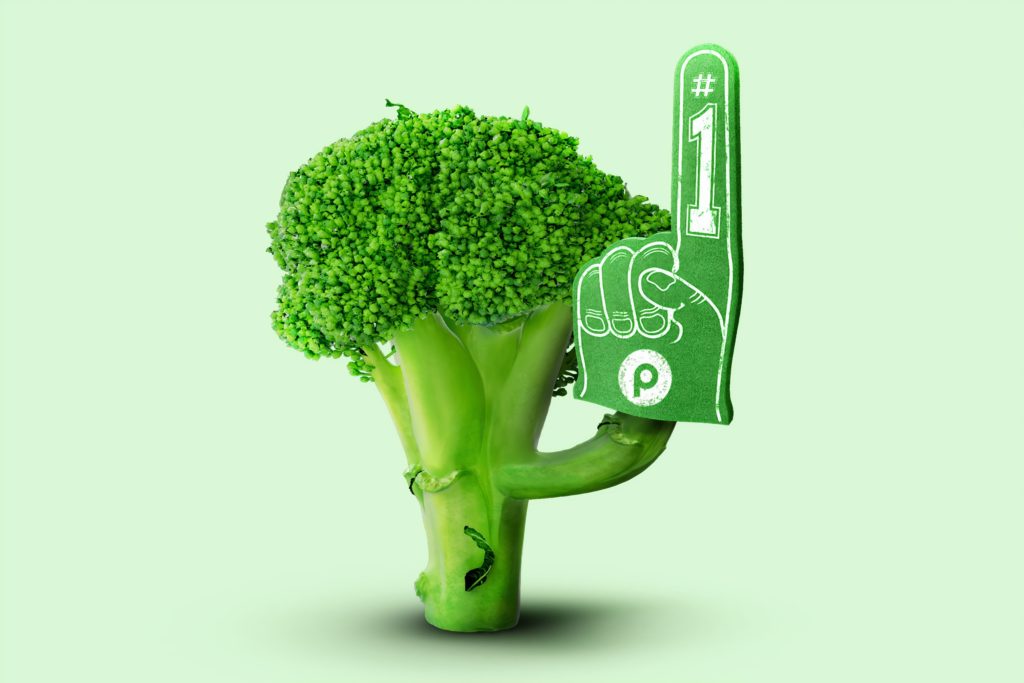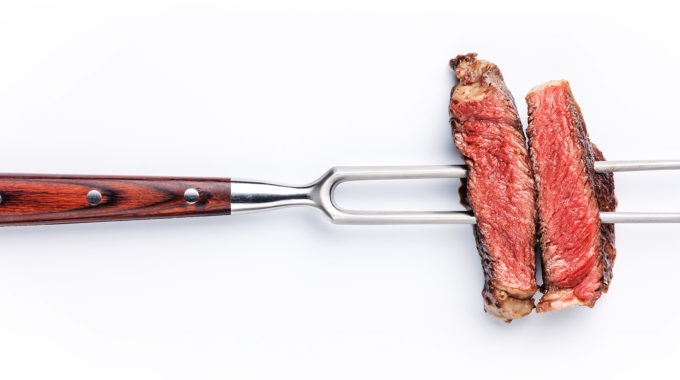Steak, sprouts & snacks: latest research
Whether you’re a vegetarian, flexitarian, omnivarian or Rastafarian, there are always going to be good and bad elements to any lifestyle choice. Take red meat – it can provide important nutrients like protein, but cook it the wrong way and it can be damaging to your health. But going meat-free isn’t a rock-solid guarantee of good health either – not all vegetarian foods are automatically healthy. Here at Eativity, we love to stay up to date with all the latest research in the world of nutrition, so we can keep you in the loop with the freshest findings. Here’s a rundown of what we’ve learned this week.

Red hot meat: the wrong recipe for heart disease
From MasterChef to MKR, the world’s best chefs have taught us how to barbeque, grill and panfry a steak to perfection. But while these methods can help you to dish up a super tender, juicy steak, new research from the University of South Australia suggests high-heat caramelisation could be bad for our health.
The study found that consuming red and processed meat increases a protein compound that may increase the risk of heart disease, stroke and complications in diabetes.
“When red meat is seared at high temperatures, such as grilling, roasting or frying, it creates compounds called advanced glycation end products – or AGEs – which when consumed, can accumulate in your body and interfere with normal cell functions,” explains UniSA researcher Dr Permal Deo.
“Consumption of high-AGE foods can increase our total daily AGE intake by 25 percent, with higher levels contributing to vascular and myocardial [heart muscle] stiffening, inflammation and oxidative stress – all signs of degenerative disease.”
Co-researcher Professor Peter Clifton says while there are still questions about how dietary AGEs are linked to disease, this research shows that eating red meat will alter AGE levels.
“The message is pretty clear: if we want to reduce heart disease risk, we need to cut back on how much red meat we eat or be more considered about how we cook it,” he says.
“Frying, grilling and searing may be the preferred methods of top chefs, but this might not be the best choice for people looking to cut their risk of disease. If you want to reduce your risk of excess AGEs, slow-cooked meats could be a better option for long-term health.”

Broccoli and Brussels sprouts a cut above
New research has shown some of the least popular vegies could be the most beneficial when it comes to preventing advanced blood vessel disease.
Researchers from Edith Cowan University’s School of Medical and Health Sciences and the University of Western Australia found higher consumption of cruciferous vegetables, such as broccoli, Brussels sprouts and cabbage, is associated with less extensive blood vessel disease in older women, as those who eat a diet high in these vegies have a lower chance of developing extensive build-up of calcium on the aorta (the main artery that carries blood from your heart to the rest of your body), a key marker for structural blood vessel disease.
Blood vessel disease is a condition that affects arteries and veins, and can reduce the flow of blood circulating around the body. This reduction in blood flow can be due to the build-up of fatty, calcium deposits on the inner walls of blood vessels, such as the aorta. This build-up of fatty, calcium deposits is the leading cause of heart attack or stroke.
“One particular constituent found abundantly in cruciferous vegetables is vitamin K, which may be involved in inhibiting the calcification process that occurs in our blood vessels,” says lead researcher Dr Lauren Blekkenhorst.
Dr Blekkenhorst says women in this study who consumed more than 45g of cruciferous vegetables every day (eg, a quarter cup of steamed broccoli or half a cup of raw cabbage) were 46 percent less likely to have extensive build-up of calcium on their aorta in comparison to those consuming little to no cruciferous vegetables every day.
“That’s not to say the only vegetables we should be eating are broccoli, cabbage and Brussels sprouts,” she says. “We should be eating a wide variety of vegetables every day for overall good health and wellbeing.”

Are all vegetarian foods healthy?
While vegies are nutritional superstars, and a plant-based diet can be a great way to improve your health and reduce your impact on the environment, not all vegetarian foods are equally healthy. Research presented at the European Society of Cardiology Congress 2020 has found that eating more plant-based foods and less animal-based products does not automatically guarantee healthier food choices and, in turn, better health status.
Most dietary studies define plant-based diets simply as “vegetarian” or “low in meat”, thereby treating all plant foods as equal. The unique aspect of this study was that it examined the type of plant-based foods consumed, in addition to the overall amount. Healthy plant-based products are mostly the least processed foods – whole grains, fruits, vegetables, nuts, olive oil, tea and coffee. Unhealthy plant-based products include juices, sweetened beverages, refined grains, potatoes and any kind of sweets, such as chocolate.
The study found that healthier choices were linked with maintaining normal blood pressure, cholesterol and blood sugar. Conversely, consuming unhealthy plant-based foods was associated with developing high blood pressure, high cholesterol and high blood sugar.
The researchers say that eating less meat is beneficial for heart health, but you’ll get the most benefits when meat is replaced with nutritious plant foods such as whole grains, fruits, vegetables, nuts and olive oil.

TV-watching snackers beware
Eating while doing something perceptually demanding makes it more difficult to notice when you feel full, according to new research from the University of Sussex, UK.
The researchers found that when your senses are taken up by an engaging task, such as watching TV, playing a video game or doing a crossword, you’re less likely to be able to adjust how much extra food or drink you consume. The team tested 120 participants, giving them low- and high-calorie drinks and getting them to complete tasks which demanded both low and high amounts of their attention. They also provided them with chips.
The team found that participants who were fully engaged in a perceptually demanding task ate roughly the same amount of chips regardless of whether or not they were initially given a high- or low-calorie drink. But the people who were engaged in a task which demanded less of them could adjust how many chips they ate. The people in this group ate 45 percent fewer chips after the higher energy drink than after the lower energy drink.
Previous research has shown that when perceptual demand is high – where the senses are engaged fully – the brain filters out some sensory information.
“Our study suggests that if you’re eating or drinking while your attention is distracted by a highly engaging task, you’re less likely to be able to tell how full you feel,” explains researcher Professor Martin Yeomans. “You’re more likely to keep snacking than if you’d been eating while doing something less engaging.
“This is important for anyone wanting to stay a healthy weight: if you’re a habitual TV-watching snacker – watching, say, an engaging thriller or mystery, or a film with a lot of audio or visual effects – you’re not likely to notice when you feel full.”









